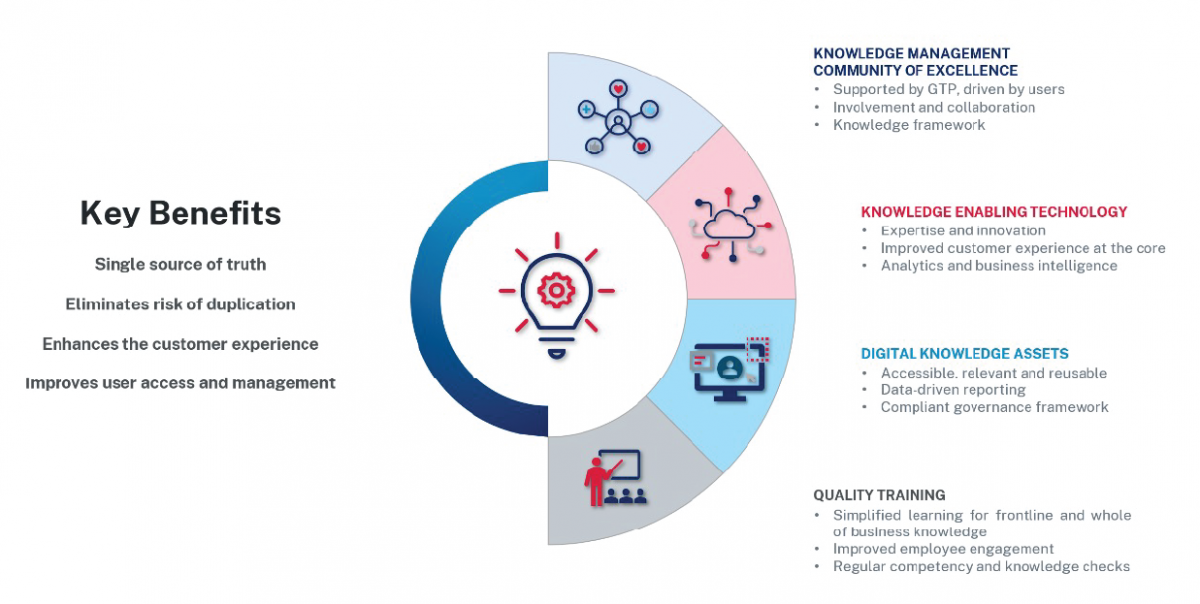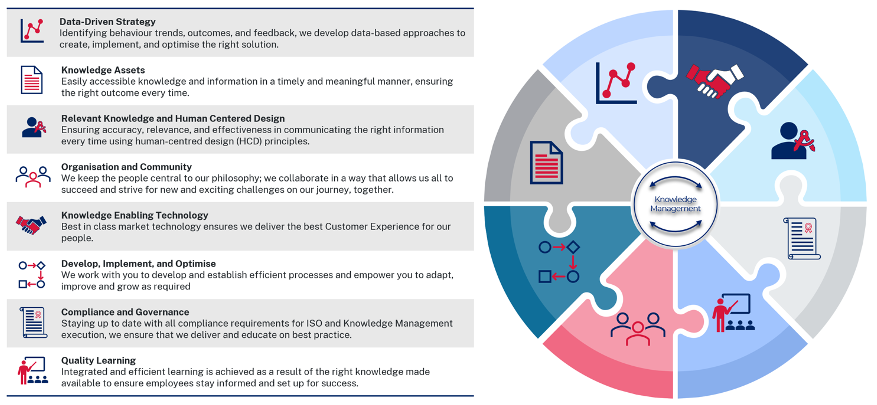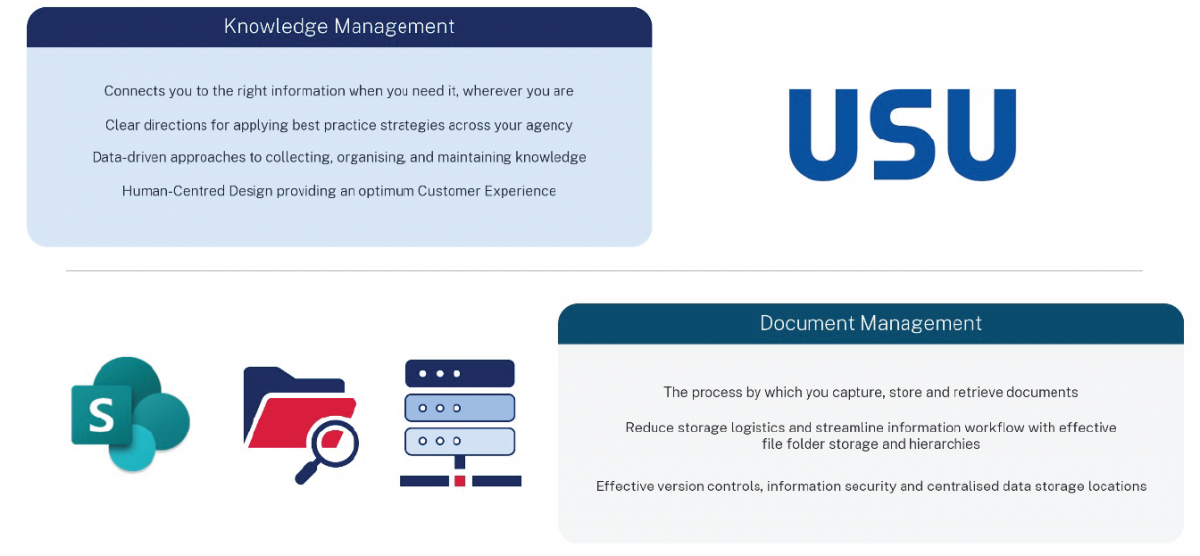Knowledge Management
Connecting our people to an accurate, single source of knowledge first time, every time.
Knowledge Management (KM) is the creation, socialisation, use of, and curation of knowledge. This is achieved by taking complex information and producing simplified knowledge.
KM enhances business performance, productivity, speed to competency, as well as providing a competitive edge and driving innovation.
Outcomes and Benefits
- Single source of knowledge leading to improved decision making
- Industry leading solution that enhances employee retention, engagement and performance
- Designed for government, co-designed with agency partners, delivers better customer experiences
- Easily accessible repository of information with full integration into core and common platforms

Our vision is to establish a culture of knowledge sharing that enables and enhances the interactions between government and the people of NSW
To achieve this, Digital NSW's goal is to identify and create a simple, consolidated and easy-to-use single source of truth framework across all of government. This will provide a world-class solution that is accessible for frontline teams, while optimising operational processes in the back end. A platform that connects all customer touchpoints will ensure timely and accurate information in the right format to efficiently meet and resolve customer needs.

Difference between knowledge management and documentation management
The Knowledge Management team works closely with product vendors to migrate content from existing platforms into a single source of truth. This enables the development, implementation, and optimisation of data-driven strategies and behaviours. The process also helps identify content for improvement using best-practice Customer Experience principles, with ongoing operational support as needed.

The purpose of a KMCoE is to serve as a hub for KM activities, resources, and expertise, and to facilitate the development and implementation of effective strategies and practices throughout the organization.
Overall, a KMCoE plays a critical role in helping organizations leverage their collective knowledge and expertise to achieve their strategic objectives and stay competitive in a rapidly changing business environment. By aligning a KMCoE with ISO standards, we ensure that all of our Government NSW knowledge management practices are consistent with globally recognized standards for quality management, information security, and knowledge management.
The CoE can help define the organization's goals and objectives for KM and its integration into the vision, strategy and mission of each business unit, and develop a roadmap for achieving them.
The CoE offers training programs and support resources to help employees develop the skills and knowledge needed to effectively manage knowledge and provide world class customer centric service interactions.
The CoE can help identify and implement tools and processes that support knowledge management, such as knowledge repositories, search engines, and collaboration platforms. The CoE also provides technology improvement road mapping to ensure the solution is at the forefront of the needs of the users.
The CoE fosters a culture sharing and collaboration within the organization by developing communities of practice, facilitating knowledge exchange events, and promoting best practices for sharing knowledge.
The CoE can monitor and evaluate the effectiveness of KM initiatives and use data and analytics to continuously improve knowledge management practices.
There are several ISO standards related to knowledge management, including ISO 9001 (Quality Management), ISO 27001 (Information Security Management), and ISO 30401 (Knowledge Management).
The CoE team will co-develop a strategy that aligns with the relevant ISO standards. This involves defining policies and procedures for knowledge management, establishing metrics and measurement systems, including auditing, and developing a culture of continuous improvement.
The team will design and implement a framework for managing knowledge that aligns with the relevant ISO standards and reimagine frameworks as it pertains to industry best practices for Knowledge Management. This involves developing processes for capturing and storing knowledge, establishing communities of practice for sharing knowledge, and using technology to support knowledge management.
Want to know more?
Visit our frequently asked questions page or get in touch by emailing GTPpartnerships@customerservice.nsw.gov.au